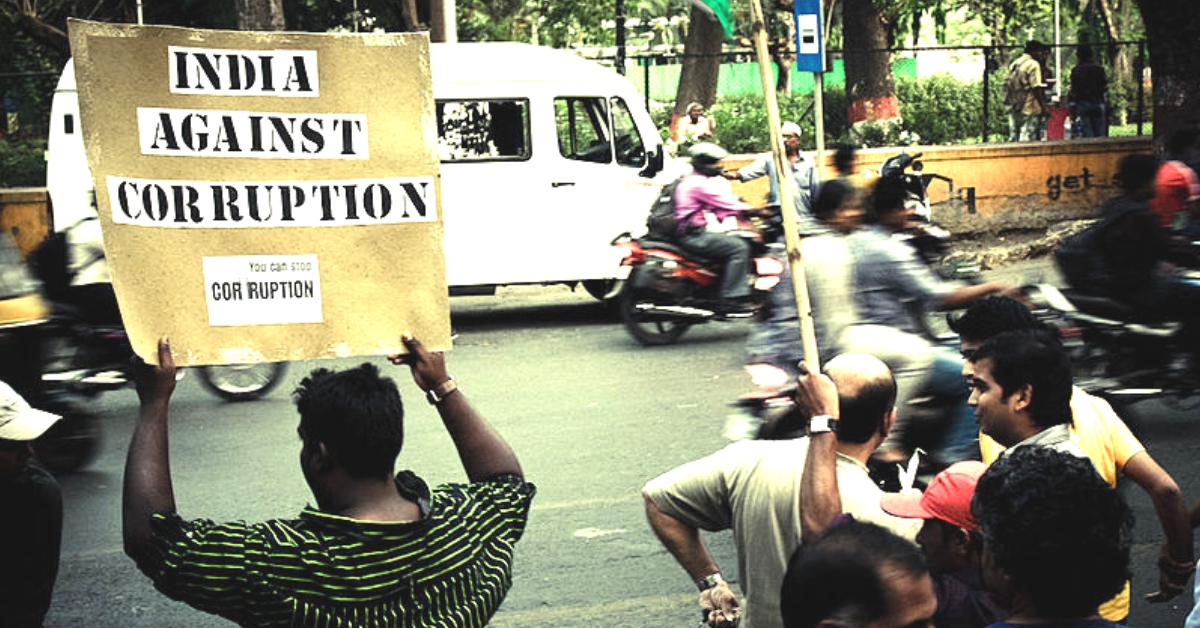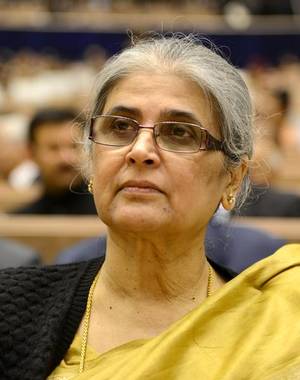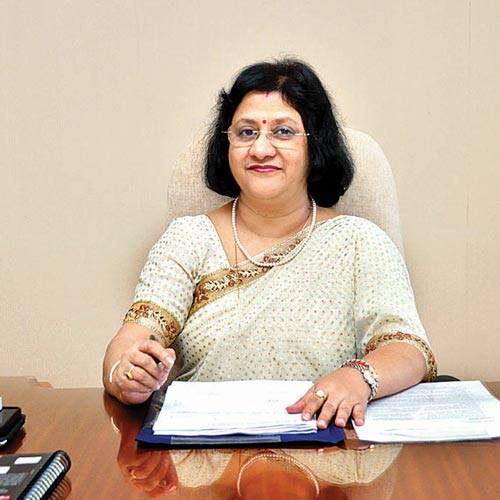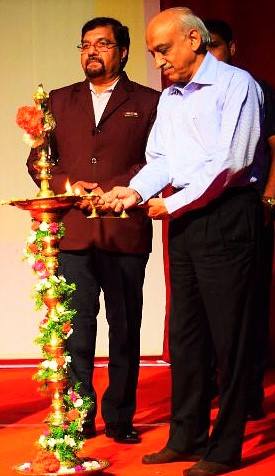Who Will Be India’s First Ever Lokpal? Meet the 8 People Who Will Determine This!
Remember that anti-corruption movement in 2011 which swept the country? Seven years later, the govt. has begun selecting India's anti-corruption ombudsman.

Amidst the flurry of judgements passed by the Supreme Court on matters including Aadhaar, adultery, entry for menstruating women into the Sabarimala temple and the detention of activists in the Bhima Koregaon case, a major news story went under the radar.
Last week, the Central government announced its eight-member search committee, who will recommend candidates for India’s first nationwide anti-corruption ombudsman, the Lokpal.
Under the chairmanship of former Supreme Court judge Ranjana Prakash Desai, the search committee will select names as per guidelines laid down in the Lokpal Act, which sets the number of members as eight, of which half will be judicial members and the other 50% from SC/ST/OBCs, minorities and women.
The Centre’s announcement of its selection committee brings back on track the much-delayed roll out of the anti-corruption watchdog, given that the bill establishing the formation of both the Lokpal and Lokayuktas was passed way back in 2014.
According to the Lokpal Act, the search committee must select candidates with “special knowledge and expertise in matters relating to anti-corruption policy, public administration, vigilance, policy-making, finance, including insurance and banking, law and management or in any other matter which in the opinion of the selection committee, may be useful in making the selection of the chairperson and members of Lokpal”.

Given below are the eight members of the search committee. Let see if the candidates selected, match the standards stated above.
1) Justice Ranjana Prakash Desai (retd)
Justice Desai (retd) is currently serving as chairperson of the Appellate Tribunal for Electricity, a position she took up soon after retirement from the Supreme Court on December 1, 2014. During her tenure in the SC, Justice Desai was involved in delivering some significant verdicts. As part of a three-judge bench on September 27, 2013, alongside Chief Justice P Sathasivam and Justice Ranjan Gogoi (current Chief Justice), Justice Desai delivered the landmark verdict which ruled that the right to register a “none of the above” vote (NOTA) in elections must apply. According to the court, the NOTA option would result in systemic changes in the election process and compel political parties to give tickets to clean candidates.

However, the same three-judge bench also dismissed a petition seeking direction to the Election Commission to hold a re-poll in a constituency when 50% or more voters vote for ‘NOTA’ (None of the Above), rejecting all candidates. Another major verdict she delivered alongside Justice Altamas Kabir on May 8, 2012, is the cancellation of the government’s Haj subsidy by 2022.
2) Arundhati Bhattacharya
Arundhati Bhattacharya made history in 2013 when she became the first woman to be appointed as Chairman of State Bank of India, the country’s largest public sector bank.
Spending nearly four decades of her banking career with the State Bank of India, she was named by Forbes magazine as the 26th most powerful woman in the world in 2016, besides becoming the first woman to lead a Fortune India 500 company.

Besides slugging it out against the massive non-performing assets (NPAs) problem in the Indian banking system, she also introduced a host of female employee-friendly policies like a two-year sabbatical leave for either maternity or elder care and free vaccination against cervical cancer.
3) AS Kiran Kumar
Aluru Seelin Kiran Kumar held the office of Chairman at the reputed Indian Space Research Organisation (ISRO) from January 2015 to January 2018.
The Padma Shri-awardee has many vital contributions to his name including the design and development of the electro-optical image sensors used in India’s first remote sensing satellite, Bhaskara, launched in 1979, besides ocean colour instruments used in weather forecasting, sea zone/landscape mapping and telecommunications, according to this profile.

Also, he was among those scientists who helped design and develop imaging instruments for projects such as the INSA-3D and later programmes such as Cartosat, Chandrayaan-1 and Mangalyaan. He has even received international recognition for his work from International Academy of Astronautics, who awarded him with the ‘Laurels of Team Achievement’ twice for Cartosat in 20018 and Chandrayaan-1 five years later.
4) Justice Sakha Ram Singh Yadav
The son of Roop Nath Singh Yadav, a lawyer and former minister of the Chaudhary Charan Singh-led Uttar Pradesh government in the 1970s, Justice Sakha Yadav served as a senior advocate and judge at the Allahabad High Court before retiring in July 2002.
During his tenure as a High Court Judge, he delivered many important judgements on issues involving upliftment of the marginalised but will be remembered for teaming up with other retired judges in 2006 urging the government to find a real solution to save the Ganga river. In 2015, he was appointed as the first ever legal expert to West Bengal’s Visva Bharati University in 30 years.
5) Ranjit Kumar
He is a notable advocate who had once served as the Solicitor General of India from 2014 to October 2017, when he abruptly resigned from his post citing “personal and health concerns.” It was a strange move considering he had just received an extension from the government. “He was [also] the standing counsel for the Gujarat government and appeared in several important matters including the Sohrabuddin Sheikh encounter case,” reports The Indian Express.
6) Lalit K Pawar
A 1979-batch Indian Administrative Service officer from the Rajasthan cadre, Lalit Pawar is currently the Vice-Chancellor of the Rajasthan ILD Skill University and former Chairman of Rajasthan Public Service Commission. He had earlier served in the minority affairs ministry before Prime Minister Narendra Modi appointed him as the secretary in the tourism ministry. This career bureaucrat was also former managing director of the India Tourism Development Corporation.
Also Read: From RTI to Lokpal, 24-YO Andhra Achiever Shows How to Make the Right Difference!
7) Surya Prakash
He is the currently in his second tenure as the chairperson of Prasar Bharti, India’s largest public broadcaster. Having spent over three decades in the field of journalism, Surya Prakash has served as the Chief of Bureau of the Indian Express from 1988 to 1993 and as political editor of Eenadu Group (1994–95) and editor of Zee News. Among other things, he has authored the book “What Ails Indian Parliament”. He will remain in his position as chairperson of Prasar Bharti till February 2020.
8) Shabbirhusein S Khandwawala
This IPS officer served as Gujarat’s first Muslim Director General of Police when he succeeded PC Pande (accused of inaction during the horrific 2002 riots) in February 2009. Khandwawala served as DGP of Gujarat Police for little over a year.
(Edited by Gayatri Mishra)
Like this story? Or have something to share? Write to us: [email protected], or connect with us on Facebook and Twitter.
If you found our stories insightful, informative, or even just enjoyable, we invite you to consider making a voluntary payment to support the work we do at The Better India. Your contribution helps us continue producing quality content that educates, inspires, and drives positive change.
Choose one of the payment options below for your contribution-
By paying for the stories you value, you directly contribute to sustaining our efforts focused on making a difference in the world. Together, let’s ensure that impactful stories continue to be told and shared, enriching lives and communities alike.
Thank you for your support. Here are some frequently asked questions you might find helpful to know why you are contributing?


This story made me
-
97
-
121
-
89
-
167











